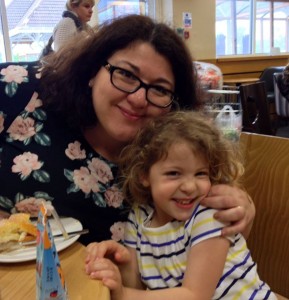![]() Ele is co-investigator on UEP, leading on the ‘engagement and impact’ investigations and co-leading the Histories work with Lisanne Gibson
Ele is co-investigator on UEP, leading on the ‘engagement and impact’ investigations and co-leading the Histories work with Lisanne Gibson
I am Professor of Communication and Media Studies at Loughborough University. I have published extensively on the belief in the transformative power of the arts and the resulting presumed ‘social impacts’ of the arts. I am the author, with Oliver Bennett, of a monograph on this topic entitled The Social Impact of the Arts: An intellectual history, published by Palgrave in 2008. In 2014, I also published a collection of essays entitled Humanities in the Twenty-First Century: Beyond Utility and Markets, co-edited with Dr Anna Upchurch and also published by Palgrave
Another strand of my work explores the theme of ‘cultural value’ and its place in current policy discourses and justification for public subsidy of the arts and culture. I have researched the politics of cultural value and questions of unequal access to the cultural authority to bestow value through an AHRC funded project, The politics of cultural value: Towards an emancipatory framework. I am genuinely committed to public engagement in this spirit, in 2012, I founded The #culturalvalue Initiative, a curated blog and resource that creates a space for debate and discussion on cultural value and policy between academics, policy-makers, arts administrators and creative practitioners. I was also co-Director of Studies of the Warwick Commission on the Future of Cultural Value, a large-scale public engagement project that aims to refresh the current cultural policy debate.
My interest in and contribution to the UEP History work is rooted in my longstanding interest in the way in which the history of ideas can illuminate how ideas, beliefs and the values attached to them can establish themselves as part of the dominant ‘structure of feeling’ (Williams 1977) of a particular time. Also how they become embedded in public institutions, in common ways of thinking and feeling, thus exerting a powerful influence long before they were first articulated. I am interested in the very idea of participation; how it came to be something to which a positive value began to be attributed, and how a particular understanding of what ‘cultural participation’ might mean was embraced and endorsed by key public cultural institutions, creating an implicit hierarchy of valuable participation and justifying ‘access’ policies in British cultural policy from the post-war to the present day.
My other key area of involvement in UEP is to explore the implications that the project’s emerging findings may have for the sphere of practice and policy-making. This will involve working with the UEP team and the project’s local and national stakeholders to create opportunities for collaborative reflection on what the new knowledge created through the project ‘means’ for communities of practice and policy-making, and how to ensure that it is integrated in their future work and planning.
 As is well known, academics devote an unhealthy proportion of their time to work. Whilst I fully live up to the stereotype, I have always managed to nurture my passion for novels having been a bookworm since a young age. When still relatively in control of my spare time, I used to design and make jewellery in silver and semi-precious stones, and I dabbled in scrapbooking for a while. Now that I am the mother of a remarkably energetic 5-year old, my everyday participation revolves around children’s theatre, surreal role playing, and plenty of cutting and sticking – oh, and ‘Frozen’, of course.
As is well known, academics devote an unhealthy proportion of their time to work. Whilst I fully live up to the stereotype, I have always managed to nurture my passion for novels having been a bookworm since a young age. When still relatively in control of my spare time, I used to design and make jewellery in silver and semi-precious stones, and I dabbled in scrapbooking for a while. Now that I am the mother of a remarkably energetic 5-year old, my everyday participation revolves around children’s theatre, surreal role playing, and plenty of cutting and sticking – oh, and ‘Frozen’, of course.
